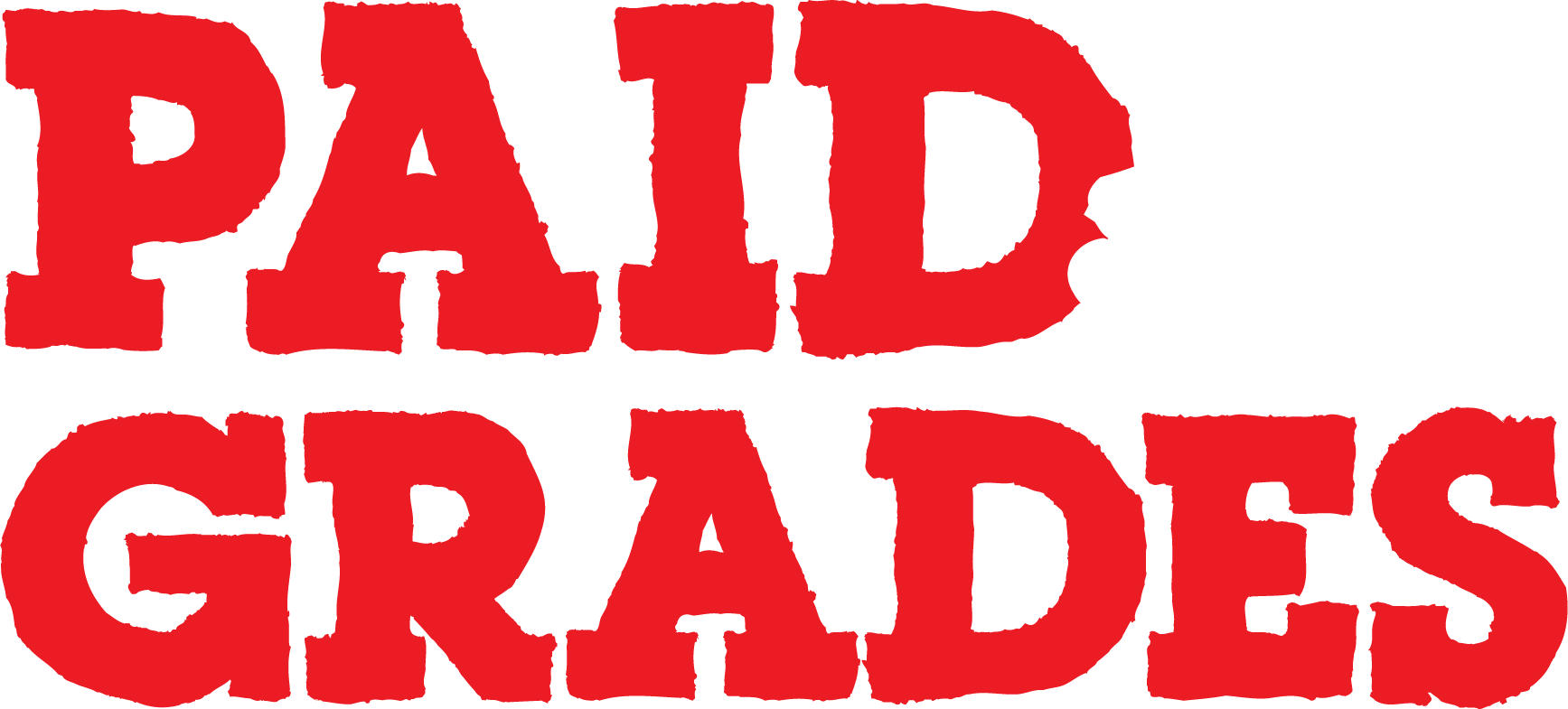In one of our recent blog posts, we offered up some recommendations for summer reading. Today, though, we wanted to double-back and highlight one genre in particular: science fiction.
What’s The Deal With Sci-Fi?
Like reading any genre of fiction, sci-fi can provide entertainment and a bit of escapism. But, there are also a few great benefits that science fiction stories are especially well-equipped to offer:
It Expands Your Horizons
Reading science fiction encourages imaginative thinking and expands your understanding of technology and future possibilities. The genre often explores complex scientific concepts and theories, challenging readers to think critically about the world around them and how it can be transformed.
This genre also allows for the exploration of ethical dilemmas and moral questions that arise with advancements in technology. As readers follow characters facing these challenges, they are prompted to consider their own beliefs and values, leading to introspection and critical thinking.
It Stimulates Creativity
Sci-fi stimulates curiosity and creativity through the exploration of futuristic worlds, advanced technologies, and extraterrestrial life. It can foster a sense of wonder and inspiration, encouraging readers to dream about what might be achievable through science and innovation.
Furthermore, many science fiction stories are set in space or on other planets, providing a broader scope for storytelling. It invites you to imagine not only what could exist beyond the Earth’s current confines, but also to let your imagination to run wild in the here and now. It opens up endless possibilities for inspiration.
It Helps You Understand the Present
Science fiction stories often tackle important social, political, and ethical issues. Sci-fi writers often use the genre to offer commentary on current society, politics, and culture, using future settings to make readers think critically about the present.
In addition to expanding one’s knowledge of science and technology, reading science fiction also allows for exploration of different societal structures, political systems, and cultural norms. Science fiction often features alternative realities or futuristic societies that allow readers to reflect on their own lives and question their current beliefs and values.
By using futuristic settings and advanced technologies, authors can tackle complex issues in a new light, providing readers with a different perspective on contemporary problems.
10 Fantastic Sci-Fi Books to Check Out
Interested in exploring the genre, but not sure where to start? No worries — check out some of our science fiction recommendations below!
Dune by Frank Herbert
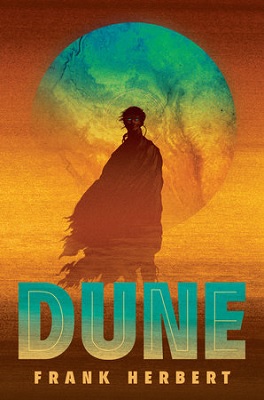
Might as well start with the big one. Dune is a seminal work in the science fiction genre, set in a distant future where noble houses vie for control of the desert planet Arrakis, the only source of the universe’s most valuable substance, melange or “spice.” The novel follows Paul Atreides, whose family takes over stewardship of Arrakis, and delves into themes of politics, religion, and ecology as Paul navigates betrayal and seeks to fulfill his destiny. Rich with intricate world-building, Herbert weaves a complex tale of power, prophecy, and environmental stewardship, making Dune a profound exploration of human nature and societal structures.
Binti by Nnedi Okorafor
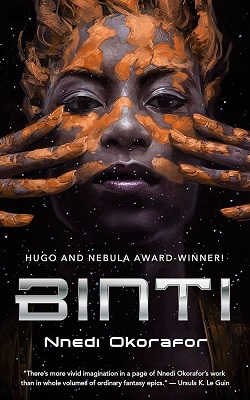
Binti is a short but gripping science fiction novella that tells the story of Binti, the first of the Himba people to be accepted into the prestigious Oomza University, a place of higher learning located in the far reaches of space. As she embarks on her journey, Binti leaves behind her family and culture to pursue her passion for mathematics and innovation. The voyage, however, is fraught with peril as Binti encounters the Meduse, an alien race with a longstanding enmity against humans. Through her resourcefulness and unique heritage, Binti must navigate conflicts and find a way to bridge the gap between warring civilizations. The novella, despite coming in at less than 100 pages, masterfully explores themes of identity, belonging, and the intersection of tradition and progress.
The Left Hand of Darkness by Ursula K. Le Guin
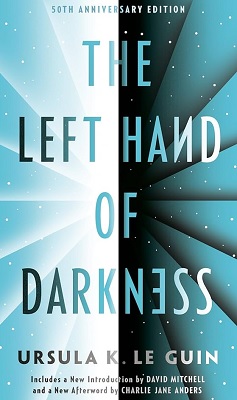
The Left Hand of Darkness is a groundbreaking science fiction novel that takes place on the icy planet of Gethen, where inhabitants can change sex during their life cycle. The story follows Genly Ai, an envoy from the Ekumen, an interstellar coalition, who is sent to persuade Gethen’s nations to join the union. As Genly navigates cultural misunderstandings and political intrigue, he forms a deep, transformative relationship with Estravan, a Gethenian who helps him understand the complexities of their society. Le Guin’s novel challenges traditional notions of gender and explores themes of identity, loyalty, and human connection in a profoundly thought-provoking narrative.
Mistry for the Future by Kim Stanley Robinson

Ministry for the Future is a compelling and thought-provoking novel that centers around a global organization established to advocate for the interests of future generations in response to the escalating climate crisis. The story begins with a harrowing heatwave in India and follows the efforts of Mary Murphy, the head of the Ministry, and her team as they navigate political, economic, and ecological challenges to implement sustainable and innovative solutions. Through a blend of narrative, realistic news clips, and interview snippets, Robinson weaves together a fictional collage that feels real and believable. The book delves into topics such as geoengineering, economic reform, and international cooperation, presenting a hopeful yet urgent call to address the pressing environmental issues facing our world.
Foundation by Isaac Asimov
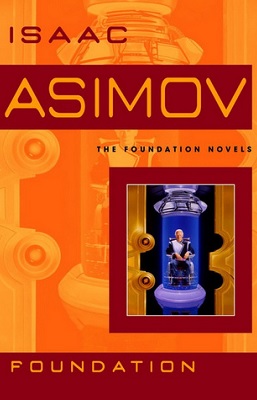
Foundation is a seminal science fiction novel that lays the groundwork for an epic saga about the rise and fall of civilizations. Set in a distant future where the Galactic Empire is crumbling, the story introduces Hari Seldon, a visionary mathematician who develops the science of “psychohistory” to predict and alter large-scale future events. Seldon establishes the Foundation, a community of scientists and scholars, on a remote planet to preserve knowledge and shorten the impending period of chaos known as the “Dark Ages.” Through a series of interconnected stories, Asimov explores themes of politics, religion, and the inevitability of change, creating a richly layered narrative that has profoundly influenced the science fiction genre.
Pable of the Sower by Octavia E. Butler
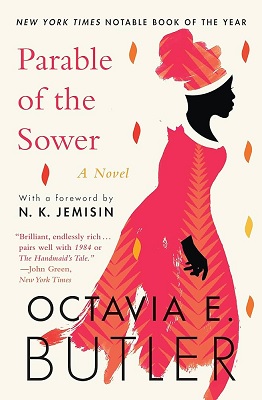
Parable of the Sower is a frightening yet powerful dystopian novel set in a near-future America ravaged by climate change, social inequality, and economic instability. The story follows Lauren Olamina, a young woman with hyperempathy syndrome, who can feel the pain and pleasure of others. As her community collapses, Lauren ventures into the perilous world beyond with a vision of creating a new belief system called Earthseed, which prophesizes that “God is Change.” Through her journey, Lauren gathers followers and battles against the odds to establish a community founded on the principles of adaptability and resilience. Butler’s novel is a profound commentary on human survival, faith, and the power of transformation in the face of adversity.
Mort by Terry Pratchett
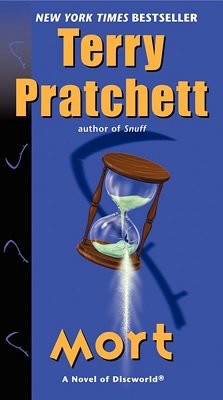
Mort is a comedic novel set in the whimsical Discworld universe. Another relatively short book, the story follows Mort, a bumbling yet earnest young man who becomes an apprentice to Death himself, personified by the Grim Reaper. The young man grapples with the complexities and moral dilemmas of fate and justice as he learns the ropes of ushering souls into the afterlife. Complications arise when Mort falls for a princess whose life he is supposed to end, leading to a series of humorous and existential adventures. Through its witty prose and rich character development, Mort explores themes of duty, mortality, and the nature of existence with Pratchett’s signature blend of satire and warmth. It’s a charming comedy that just might change how you think about life and death.
This is How You Lose the Time War by Amal El-Mohtar and Max Gladstone
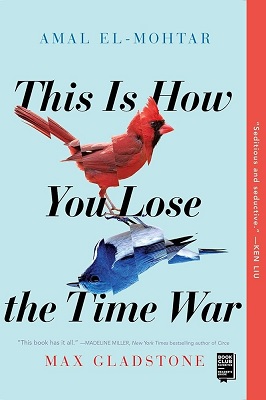
This is How You Lose the Time War is a beautifully crafted epistolary novel that transcends traditional science fiction narratives. The story revolves around two time-traveling agents, known only as Red and Blue, who are on opposing sides of a cataclysmic battle to shape the future. Amidst their clandestine missions to outmaneuver each other, they begin a covert correspondence that evolves from taunting remarks to intimate confessions, revealing a burgeoning love that defies the boundaries of time and allegiance. Through their poetic and heartfelt letters, Red and Blue explore themes of identity, loyalty, and the transformative power of love. Their relationship becomes a poignant counterpoint to the relentless war, ultimately questioning the true cost of victory and loss.
Leviathan Wakes by James S.A. Corey
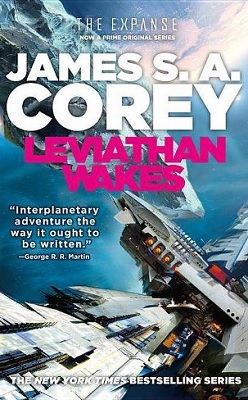
Leviathan Wakes is a gripping space opera that kicks off The Expanse series. The novel unfolds in a future where humanity has colonized the Solar System, but the fragile peace between Earth, Mars, and the Belt is threatened by rising tensions. The story follows two primary characters: Jim Holden, an officer on an ice-hauling spaceship, and Detective Miller, a jaded cop from the asteroid belt. When Holden’s ship discovers a mysterious derelict vessel, and Miller is assigned to find a missing girl, their paths converge in a complex web of conspiracy, political intrigue, and an enigmatic alien protomolecule that could change the fate of humanity. The novel is a thrilling blend of noir and hard science fiction, exploring the intricacies of human survival and governance in the vastness of space.
The Fifth Season by N.K. Jemisin
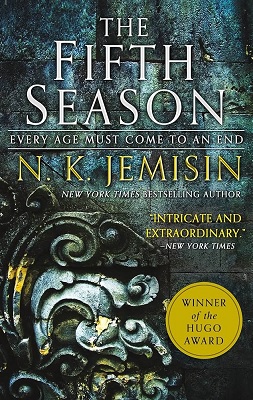
The Fifth Season is a masterful piece of speculative fiction that begins The Broken Earth trilogy. Set on a planet plagued by apocalyptic geological events, the narrative follows three interconnected stories of survival and resilience. Essun, a woman with hidden powers, embarks on a quest to save her kidnapped daughter amidst the chaos of a ruptured world. Simultaneously, we explore the lives of Damaya, a young girl discovering her abilities, and Syenite, an orogene navigating the perilous dynamics of her society. Jemisin intricately weaves themes of oppression, identity, and the enduring struggle for freedom. Through these pages, The Fifth Season paints a vivid and haunting portrayal of a world on the brink of collapse — but that doesn’t mean it’s a world without hope.
Pick What Resonates With You
These are all exemplary works of science fiction that cover a wide range of themes, topics and ideas. The books we’ve highlighted today are just scratching the surface, though.
Sci-fi not only entertains, but also provoke thoughtful consideration of societal constructs and human resilience. Their intricate plots and richly developed characters make them must-reads for any enthusiast of the genre. Pick up the book that sounds most interesting to you and give it a shot!
